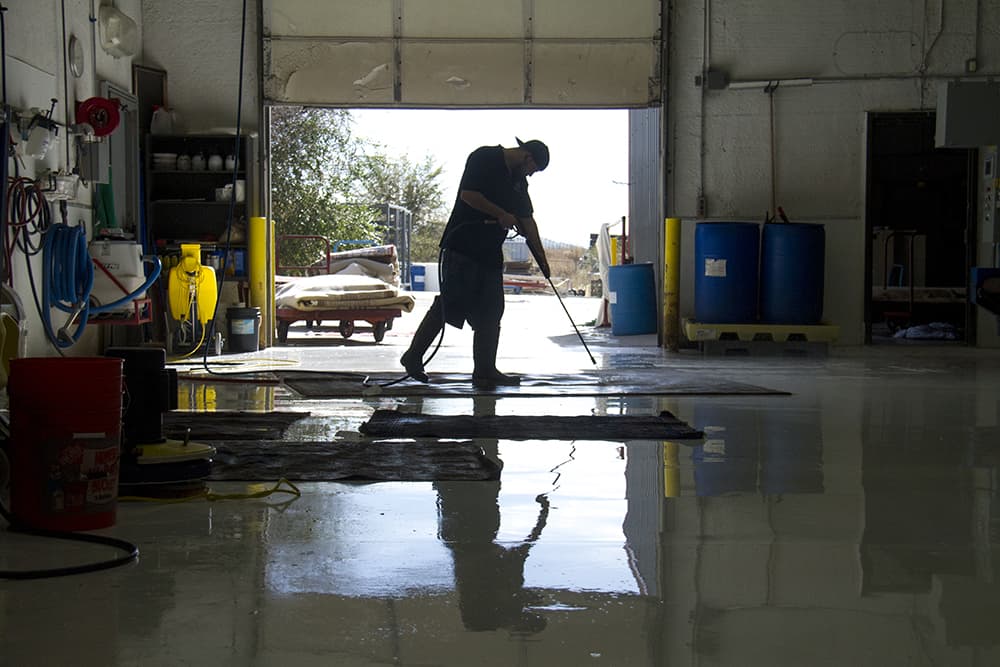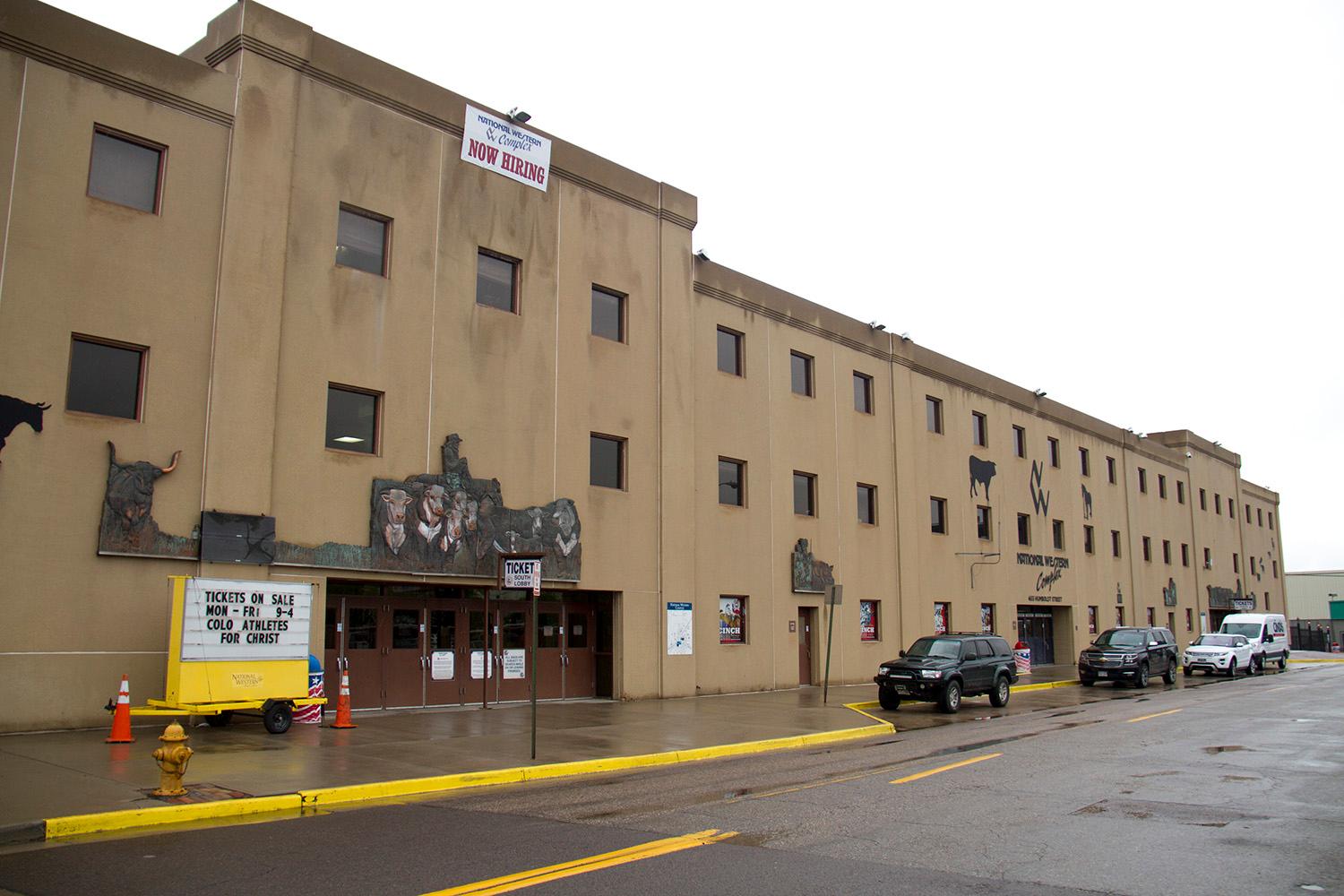
Robert Mann planned to grow his rug cleaning business in Elyria-Swansea before he learned he'd have to roll up his shop and make way for the National Western Center expansion.
Mann spent $1.2 million on the warehouse that houses Robert Mann Rugs back in 2008.
"It was always our intention to build another 10,000-square-foot building on the back end. That's why I never wanted to move," Mann said. "This was going to be the last building I bought."
Not moving isn't really a choice for Mann and the other small companies sitting on the land the city of Denver is looking to buy. Just staying in Denver might prove to be a challenge.
In November, voters approved borrowing and tourist tax extensions that will provide the bulk of the funding for the $1.1 billion National Western Center project. The city's goal is to transform the National Western Complex and Denver Coliseum from the home of a roughly two-week agriculture event complete with professional rodeos, a horse show and a western trade show to a year-round destination and global hub for agriculture and innovation.
But in order to do that, the city has to buy about 106 acres of private property.
Earlier this year, Mann did the inevitable and dropped $1.6 million for the old Mile High Comics building at 2151 W. 56th Ave. in Adams County. Even with the city's help and funding, he expects to have to reach into his own pocket for $300,000 or $400,000 in order to move.
"We will be subsidizing their project in some fashion," Mann said. "I'm not saying it's unfair. I'm saying that's how the regulations were written.... It just is what it is."
Denver Councilwoman Deborah Ortega and other community leaders have asked city staff to do everything they can to keep the businesses facing relocation within city limits. Ortega said it's especially important if they're employing workers in the neighborhood.
The stock show project is expected to replace 300 to 500 workers in the area with 108 full-time workers at the complex and another 6,000 to 10,000 direct and indirect jobs that result from the area being redeveloped, according to a plan filed with the state.
Some of the jobs would be in agribusiness industries. But it's unclear if they'd be better paying or harder to obtain than what's currently available in the area.
"What I can tell you in our goal is to create a range of office, laboratory and food testing and production type spaces that will create a broad range of job opportunities that will be far broader and more diverse in skill requirements and experiences than what is there today," said Kelly Leid, executive director of Denver's Office of the National Western Center.
Leid was unclear how many residents who live in Elyria-Swansea will have to extend their commute as companies relocate.
"These businesses have been part of the fabric of our city. They’ve helped Denver grow," Ortega said. "But at the end of the day, it's a judgment call on the part of the business on whether or not they want to stay in the city."

Finding a new spot within Denver will likely be challenging for the companies sitting on the 26 commercial parcels the city is acquiring for the stock show expansion. That's partly because the city's other industrial spaces cost more to rent or own than the land around the stock show.
The city started the process of purchasing properties in April and hopes to have all the land scooped up by 2018, Leid said.
"The city can't dictate where people locate, but we've worked very hard to keep these businesses in the city and county of Denver," Leid said.
As of Sept. 21, Denver has closed on four commercial properties in the expansion path, according to the North Denver Cornerstone Collaborative. Those include Service Systems Associates, International Paper Co., Rocky Mountain Colby Pipe Co. and Ship/Art Denver.
Service Systems is building a new office in Northfield. International Paper Co. is reportedly closing its Denver office. Rocky Mountain Colby Pipe Co. President Steve Foote said "it would be premature at this point" to discuss what the company plans to do. Ship/Art owner Alan Jones said he plans to be in his new office in Aurora before the end of the year.
"These businesses will be coming out of affordable spaces and be trying to find space in an unaffordable market," said Murray Platt, first vice president at the real estate firm CBRE. Developments like the TAXI in RiNo have been taking out chunks from industrial spots in Denver and shrinking them or replacing them with retail or residential development.
"As our city has grown and expanded and changed, not only are we seeing tenants having to relocate, but we're also seeing our industrial base affected, taking offline cheaper, older buildings," Platt said. "All the new industrial construction is exciting, but it's expensive."
Cost is ultimately why Jones decided to move his fine art handling company to an area near Airport Boulevard and Interstate 70.
"We could not compete in the local Denver market with the weed guys," Jones said. "The only way we felt we could make the math work would be to start looking outside of Denver."

Like other business owners in the area, Jones decided to look at being forced to move as an opportunity to build and expand. He's doubling his capacity in his new shop. His neighbor Robert Mann Rugs is also getting more space to take on more business.
"I wish it had never happened, but it's not turning out to be as bad as I thought it would be," Mann said.
Business & data reporter Adrian D. Garcia can be reached via email at [email protected] or twitter.com/adriandgarcia.
Subscribe to Denverite’s newsletter here.











